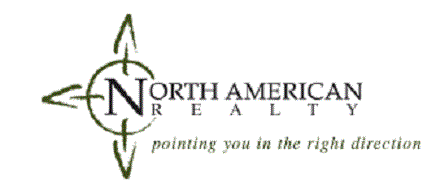 Make A Wish List and A “Must-Have” List
Make A Wish List and A “Must-Have” List
Before you begin looking for a home, take time to decide what you need versus what you want. If you’re dreaming of a gourmet kitchen or a swimming pool, put them on your wish list. But be practical and develop a separate list of what you must have in a home to be comfortable, such as: number of bedrooms and their size, garage, size of the yard, appliances, fireplace, air-conditioning, laundry room and storage space.
In addition to details about the home you want, you should make a list of these items.
How close to work you’d like to be.
How near you would like schools, shopping and recreation to be.
The safety of the location you’d like to live.
Do you need to live in an expensive gated community like Morgan Creek or can you live in a less expensive neighborhood in Roseville.
The more specific you are about what you want in home, the easier it will be to focus your home search on homes that have the features you want.
 Find Out How Much Home You Can Afford
Find Out How Much Home You Can Afford
House hunting is faster and easier when you know what price home your budget can handle. Most lenders follow what is called the “28/36” guideline. In general, lenders want no more than 28 percent of your gross (before taxes) monthly income spent on your mortgage, home insurance and property taxes. In addition, your lender would prefer your total debt (both mortgage and consumer debt, such as car loans or credit card payments) to be no more than 36 percent of your gross monthly income.
People with good credit histories may be allowed to go over these limits. To find out the price range of homes you can afford, use the Calculators
 Start House Hunting
Start House Hunting
Whether you look for a home on your own or use a real estate agent, keep these important tips in mind as you look for your next home:
Keep your “Must-Have” list with you to make sure a home that interests you has the features you most want.
Stay focused on what you like about the house, rather than its furnishings. Remember that the owners will take that beautiful painting and antique armoire with them when they move.
Find out everything that is included in the sales price. Many owners include appliances, light fixtures and window treatments along with the house at no extra cost.
Write down details about each home you visit. Take photos inside and outside each home and staple them to the detail sheet, along with the property’s address, to jog your memory about the homes you’ve seen.
Most agents recommend that you limit your list to your top four choices — so cross out and add homes to your list as you visit new homes. This will help you make your final decision and help you choose a home that has the features you most want.
Remember that the sales agent works for the seller — not for you. Even if a sales agent treats you like a long time friend, keep the top price you’re willing to pay for a home a secret. As far as the sales agent (and the seller) should know, the price you offer for a home is the most you will pay.
When you make a written offer on a home, include the reasons you will be allowed to back out of your contract. These reasons, called “contingencies,” are very important and protect your interest if there is a problem. A few problems that might come up:
1. Your attorney or title company finds legal issues with the property.
2. You’re unable to get the loan you need.
3. Your home inspector finds serious damage or problems with the house.
 Find the Right Home Loan and Apply
Find the Right Home Loan and Apply
With so many choices available, you should be able to find one or more home loans with the options that are right for you. Check out our section on which lender to choose. It can help you learn about different types of home loans and options. This way you can decide which home loan is best for you.
Before you apply, review our helpful How To Get and Keep Good Credit section to learn how your credit rating affects your home loan decision and what you can do to improve your credit. Also if you need help fining a good lender, check out our page on that.
When you’re ready to apply, your lender will need proof of the information you give. Helpful documents to have on hand include: 1. Your most recent paycheck stub. 2. A copy of your current bank statement 3. Information about other accounts and debts, such as stocks, your 401(k) program and the balance on your credit cards. Find out exactly what’s needed in our How To Prepare Your Loan Paperwork section.
![]() Welcome Home!
Welcome Home!
To protect the interest rate you were quoted when you applied for your home loan. You may choose to lock your interest rate for a set amount of time — usually 30 or 60 days. You need to close on your mortgage (sign the final papers) before this time limit is over to protect your interest rate.
3-5 days before signing you should complete a final inspection of the home. Then you’ll attend the loan closing, which is where you’ll sign any legal/home loan papers and pay any closing fees. Depending on your lender you normally close 1 to 3 days after signing. Your agent will contact you when the property has recorded and you’ll be given the keys to your
